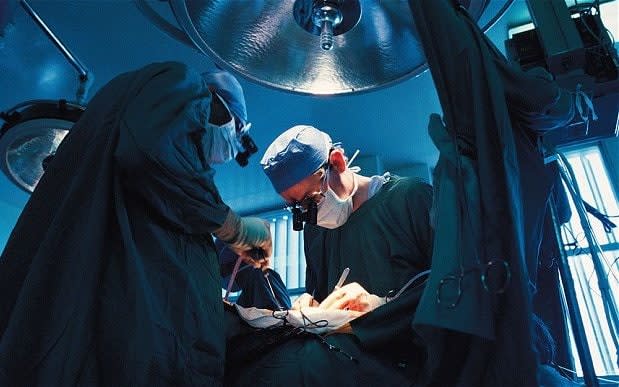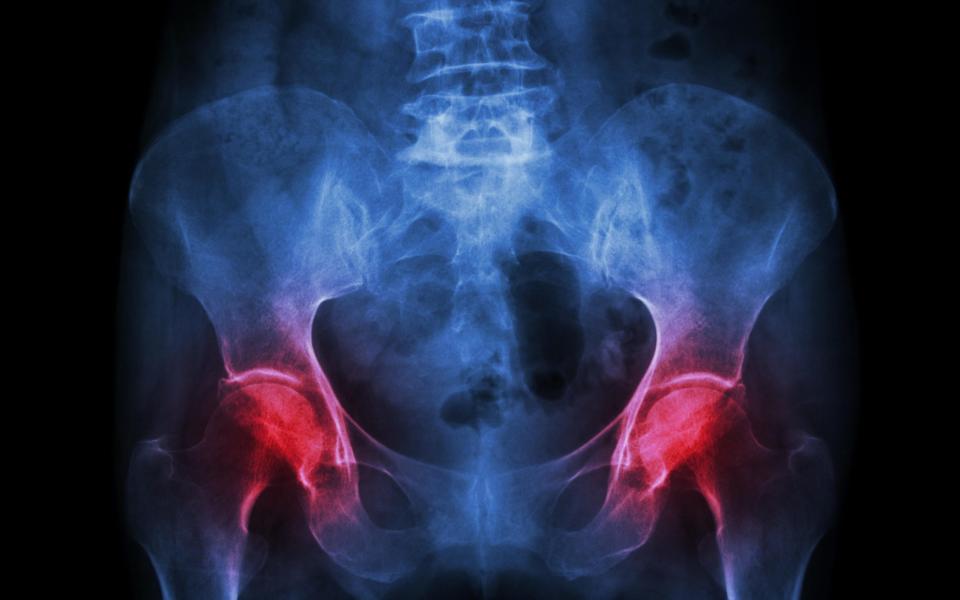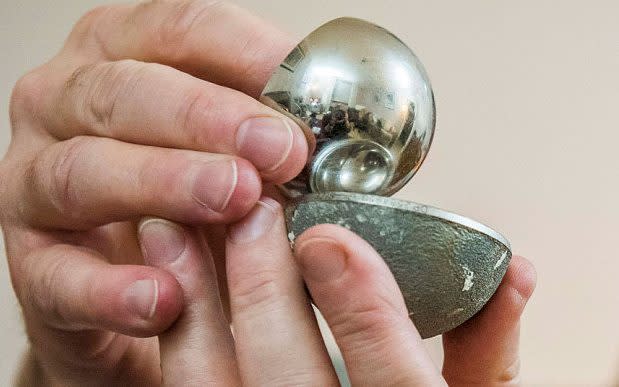Hundreds of lives lost after delays in hip operations, study finds

Almost 700 people may have died after their hip surgery was wrongly delayed, a study has found.
Researchers in Bristol found the lives of hundreds of patients with hipfractures could be saved if they were operated on in under 24 hours.
The number of patients who died after 30 days was eight per cent higher for those who received surgery between 24 and 36 hours after admission to hospital, the study found.
The delay is thought to have caused more than 670 deaths in four years. If patients were operated on more than 48 hours after admission, the risk of death increases to 20 per cent, according to the research.
We have shown for the first time that early surgery is much better for patients
Timothy Chesser
Timothy Chesser, who led the research project at Southmead Hospital, said the findings were the first to make clear the benefits of early surgery.
Mr Chesser's team collected data from the National Hip Fracture Database, the largest of its kind, to conduct the study.
Their research focused on 241,446 patients in England and Wales who were admitted to hospitals with hip fractures over a four year period, from 2011 to 2014, and the mortality rate for the patients 30 days after their admission.
While 2011 guidance by the National Institute for Health and Clinical Excellence suggests that patients be operated on either the same day, or the day after, hospital admission, this latest research suggests earlier action can be vital.
This is particularly the case for frail and elderly patients who have multiple health issues. However, Mr Chesser said early surgery was not advisable for every patient, but was beneficial in the majority of cases.

"We have shown for the first time that early surgery is much better for patients," he told the BBC.
"The caveat is some of these patients are very sick and would benefit from greater time to get better before surgical procedures."
The findings mark the latest in a series of concerns over the level of care available to hip patients in Britain.
In January, it was revealed that NHS rationing plans have suggested patients needing a new hip will only be operated on if they are in so much pain they cannot sleep or carry out daily tasks.
Three Clinical Commissioning Groups in the West Midlands have drawn up plans to dramatically cut the number of people who qualify for hip and knee replacements, in a bid to save £2m a year.
Earlier this month, this newspaper exposed a series of failings in the care of thousands of British patients who were fitted with unsafe hip implants.

The Telegraph's investigation found patients were fitted with hip implants manufactured by DePuy - despite experts warning the company that the device was unsafe.
A senior engineer working for DePuy reported in 1995 that metal-on-metal constructions were “unpredictable” and parts prone to “catastrophic breakdown”, five years before DePuy’s hips began to be implanted in Britons.
More than 20,000 patients were later fitted with the implants, which experts say can deposit toxic ions into the bloodstream as they wear. Thousands were left in agony and had to have costly operations to have them replaced with safer alternatives.
Andrew Selous, a Conservative MP on the Commons health committee, described the disclosure as “appalling”, saying: “If the company was aware of problems, they should have acted on the precautionary principle.”
The Telegraph investigation exposed a series of previously unseen memos, reports and emails, obtained from DePuy, that raised questions about the safety of metal-on-metal devices.
Timeline: Metal hip implants put under scrutiny Register Log in commenting policy

